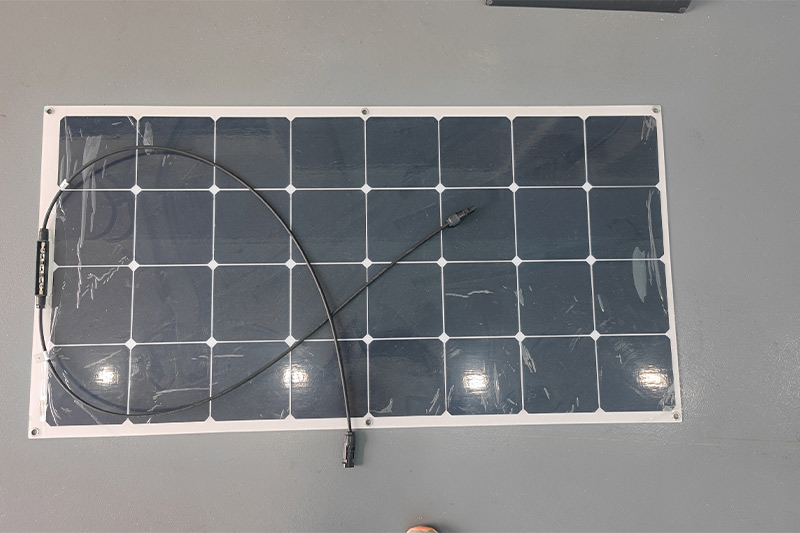As the demand for renewable energy continues to grow, solar panels have become a popular choice for homeowners and businesses alike. However, one crucial aspect of solar panel installation that often goes overlooked is the insulation used for wiring. In this blog post, we will explore the importance of flame-resistant insulation in protecting the circuitry of solar panels. By understanding the risks involved and the benefits of using flame-resistant insulation, you can ensure the long-term safety and durability of your solar panel system.

When it comes to solar panels, proper insulation is essential for several reasons. Firstly, without adequate insulation, there is an increased risk of electrical short circuits and fires. Solar panels generate and transmit high voltages, and any exposed or poorly insulated wiring can lead to dangerous situations. Secondly, extreme weather conditions such as heat, cold, and moisture can cause insulation to degrade over time, further increasing the risk of electrical hazards. By using flame-resistant insulation, you can mitigate these risks and protect your solar panel circuitry.
Flame-resistant insulation is specifically designed to resist the spread of fire. It is made from materials that have a high ignition temperature and low flammability, ensuring that in the event of a fire, the insulation will not contribute to its spread. Additionally, flame-resistant insulation has excellent thermal resistance properties, which means it can withstand high temperatures without degrading or compromising its insulating capabilities. By using flame-resistant insulation, you create an additional layer of protection for your solar panel circuitry.
Fire-resistant insulation offers several key advantages, making it an essential component in fire safety measures.
Firstly, it significantly reduces the spread of flames during a fire, providing crucial time for evacuation and minimizing property damage.
Additionally, fire-resistant insulation materials have excellent thermal resistance properties, contributing to better energy efficiency and lower heat transfer.
Moreover, they are often chemically stable, non-toxic, and do not release harmful gases when exposed to high temperatures, ensuring a safer environment for occupants and emergency responders.
There are various types of fire-resistant insulation materials available, each with its unique properties and applications. Some commonly used materials include:
Mineral wool, also known as rock wool or slag wool, is a type of fire-resistant insulation made from natural or synthetic minerals. It provides excellent thermal and acoustic insulation, is non-combustible, and offers resistance against high temperatures and moisture.
Ceramic Fiber Insulation:
Ceramic fiber insulation is made from alumina-silica-based materials and is known for its exceptional resistance to high temperatures. It is lightweight, flexible, and widely used in industrial applications such as furnaces, kilns, and foundries.
Polystyrene Insulation:
Polystyrene insulation, commonly known as EPS (Expanded Polystyrene) or XPS (Extruded Polystyrene), is a popular choice for its fire-resistant properties. It has low flammability and can be found in building construction, insulation boards, and packaging materials.
Polyimide insulation is a high-performance material known for its excellent thermal and electrical insulation properties. It has exceptional fire resistance and is commonly used in aerospace, electronics, and automotive applications.

Fire-resistant insulation for solar panels is essential in preventing electrical fires. Solar panels produce electricity from sunlight, and any faulty or exposed wiring can lead to short circuits or sparks, increasing the risk of fire. Fire-resistant insulation acts as a protective barrier, reducing the chances of electrical fires by containing and preventing the spread of flames, heat, and sparks.
The use of fire-resistant insulation significantly enhances the safety of solar panel systems. It helps protect the electrical components from external heat sources, such as wildfires or nearby fires, by reducing the risk of ignition. Fire-resistant insulation materials are designed to withstand high temperatures and resist combustion, ensuring the integrity and functionality of the solar panel system even in fire-prone environments.
Fire-resistant insulation materials contribute to the long-term performance and durability of solar panels. They are designed to withstand environmental factors such as UV radiation, moisture, and temperature fluctuations, which can degrade insulation over time. By using fire-resistant insulation, you can ensure the insulation’s effectiveness and maintain the optimal performance of your solar panel system throughout its lifespan.
In many jurisdictions, fire-resistant insulation for solar panels is a requirement to meet safety standards and regulations. Adhering to these standards not only ensures compliance but also helps protect the property and occupants. By using fire-resistant insulation, you demonstrate your commitment to safety and reduce liability in the event of a fire incident.
Another significant advantage of fire-resistant insulation is its ability to minimize the spread of fire in the event of a fire incident. By containing the flames and preventing the ignition of nearby materials, fire-resistant insulation limits the damage and potential spread of fire to other areas of the building or property. This allows for safer evacuation and gives more time for emergency responders to mitigate the situation..
Fire-resistant insulation is of utmost importance in promoting the safety and longevity of solar panel systems. By preventing electrical fires, enhancing system safety, ensuring long-term performance, complying with safety standards, and minimizing fire spread risks, fire-resistant insulation plays a crucial role in protecting both the solar panel system and the property. By prioritizing fire safety through the use of fire-resistant insulation, you can enjoy the benefits of renewable energy while ensuring a secure and resilient environment.
If you need our products please write down any questions, we will reply as soon as possible.
There are three ISO certificates for quality certification. The certificates will be shown later. ISO
After receiving the advance payment, the production cycle is 15-25 days. And the transportation cycle should be calcul……
We supply with installation guide and user manual for each transformer. If you do not understand them. We will offer v……